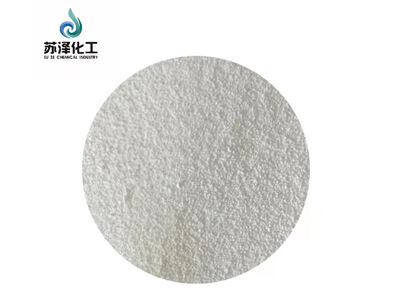ເນື່ອງຈາກພວກເຮົາສະໜອງ ເບນຊອຍ ໂປຣໄອເດີ (BPO) ວິທີແກ້ໄຂ (CAS 94-36-0), ພວກເຮົາຮູ້ດີວ່າການເກັບຮັກສາ ແລະ ການຂົນສົ່ງຢ່າງປອດໄພມີຄວາມສຳຄັນຫຼາຍສຳລັບເປົ້າໝາຍອິນຊີທີ່ມີຄວາມສ່ຽງສູງນີ້. BPO ຂອງພວກເຮົາທີ່ມາໃນຮູບແບບເປັນເນື້ອຫຼາຍ 50% ແລະ ຜົງ 75%, ໄດ້ຖືກຈຳແນກໂດຍ UN ໃນລະຫັດ UN3103 (ຂອງແຫຼວ) ແລະ UN3104 (ຜົງ) ແລະ ຕ້ອງປະຕິບັດຕາມກົດລະບຽບດ້ານຄວາມປອດໄພໃນລະດັບສາກົນຢູ່ສະເໝີ. ທາງລຸ່ມນີ້, ທ່ານຈະພົບເຫັນຈຸດສຳຄັນ ແລະ ຄວາມຊຳນິຊຳນານຂອງພວກເຮົາໃນການຮັກສາຂໍ້ມູນຂອງທ່ານໃຫ້ປອດໄພ.
ວິທີການບັນທຶກທີ່ດີທີ່ສຸດ
ທີ່ສຳເລັບຂອງ BPO ແມ່ນໃນທີ່ທີ່ຫາວ, ບໍ່ຫຼາຍນ້ຳ, ອາກາດດີແລະບໍ່ຖືກປະຈຸບັນໂດຍຄວາມໜ້າຫຼັງຫຼືວັດຖຸທີ່ສາມາດປະສານກັນໄດ້ຢ່າງຮ້າຍກັບ BPO. ອາຄານຂອງພວກເຮົາຖືກຮັກສາຢ່າງຊ່ຽງຊົນທີ່ອຸນຫະພູມທີ່ເປັນສະເພາະເພື່ອປ້ອງກັນບໍ່ໃຫ້ເປີຣອອກແຈກ. ຖ້າງັນ, ຢູ່ຫາ BPO ບໍ່ຄົງຢູ່ໃກ້ກັບວັດຖຸທີ່ເຜົາໄດ, ວັດຖຸອໍລັກນິກ ຫຼື ອັກຊີໄດເຊີນ. ຕໍ່ໄປ, ມັນແມ່ນເພື່ອຈັດການເອກະສານ, ການສ້າງແຜນການຕອບສະມາຊີການເກີດອາການເສຍ ແລະ ການສິນຄ້າທັງໝົດຂອງພະນັກງານໃນການຈັດກັບການເສຍນ້ຳມັນ.
ພື້ນຖານການສົ່ງສຳລັບຄວາມປອດໄພ
ການສົ່ງອອກທັງໝົດຂອງ BPO ມີການເປັກແພັກໃຊ້ຖືນທີ່ໄດ້ຮັບການຮັບຮູ້ຈາກ UN ເປັນພິเศດສຳລັບສິນຄ້າທີ່ມີຄວາມເສິຍຫາຍ. UN3103, ສຳລັບນ້ຳ, ມີການປິດປັກຢ່າງເປັນສັນໃນຖືນຫຼື IBCs ແລະ UN3104, ສຳລັບຜຸ້ງ, ມີການຮັກษาໃນຖືນຫຼືຖືນທີ່ບໍ່ອະນຸຍາດໃຫ້ເອົາອີງເຂົ້າຫຼືອອກເພື່ອປ້ອງກັນຄວາມສ່ຽງຂອງການເຫຼືອງຂຶ້ນຂອງຜຸ້ງ. ຢ່າງໜຶ່ງກັບຜູ້ສະໜອງທີ່ດູແນການສິນຄ້າທີ່ມີຄວາມເສິຍຫາຍ, ພວກເຮົາຕັ້ງລະບົບ Suppressing ໄຟ ແລະ Spill Kits ໃນລົດສົ່ງ. ທຸກໆການສົ່ງອອກມີການສະແດງ SDS sheets, commercial invoices ແລະຂໍ້ມູນສິນຄ້າທີ່ມີຄວາມເສິຍຫາຍທີ່ຖືກຕ້ອງ, ທີ່ຊ່ວຍຫຼຸດຄວາມສ່ຽງຂອງການລ໋ວງລ້ານທີ່ customs.
ວິທີແກ້ໄຂທີ່ມີປະສິດທິພາບດ້ານຕົ້ນທຶນສໍາລັບການສັ່ງຊື້ນ້ອຍ
LCL Innovation ການສະແດງວິທີການສຳລັບບັນຫາຂອງອຸດົມສາ: ລູ້ກຄ້າຫຼາຍຄົນທີ່ສັ່ງລອງຫຼືລູ້ກຄ້າທີ່ມີອັດຕານ້ອຍບໍ່ສາມາດຊຳລະຄ່າສົ່ງອອກຂອງ full-container loads ສຳລັບເຄມິກາລີທີ່ມີຄວາມສ່ຽງສູງ. ພວກເຮົາຊ່ວຍລູ້ກຄ້າຫຼຸດຄ່າໃນການລົງທືນໂດຍການເຮັດໃຫ້ການສົ່ງອອກໃນຖືນຮ່ວມເປັນສິ່ງທີ່ເປັນສະໜາມ.
ຄວາມສັນຍາຂອງພວກເຮົາໃນການປ້ອງກັນ
ສັນຍາມເລີ່ມຕົ້ນທີ່ການຄົ້ນຄວ້າແລະພັດທະນາ ແລະສຳເລັດຫາງໃນເວລາທີ່ສິນຄ້າຂອງພວກເຮົາຖືກສົ່ງໄປຫາຜູ້ຂາຍສິນຄ້າ. ບໍ່ວັນໃດທີ່ພວກເຮົາສະຫຼຸບ BPO ເພື່ອໃຊ້ໃນ polymer, coating ຫຼື road marking paint, ພວກເຮົາສັນຍາວ່າມັນຜ່ານການທົດສອນຄຸນພາບແລະສັນຍາມທີ່เขັງແຂງຂອງພວກເຮົາ.



